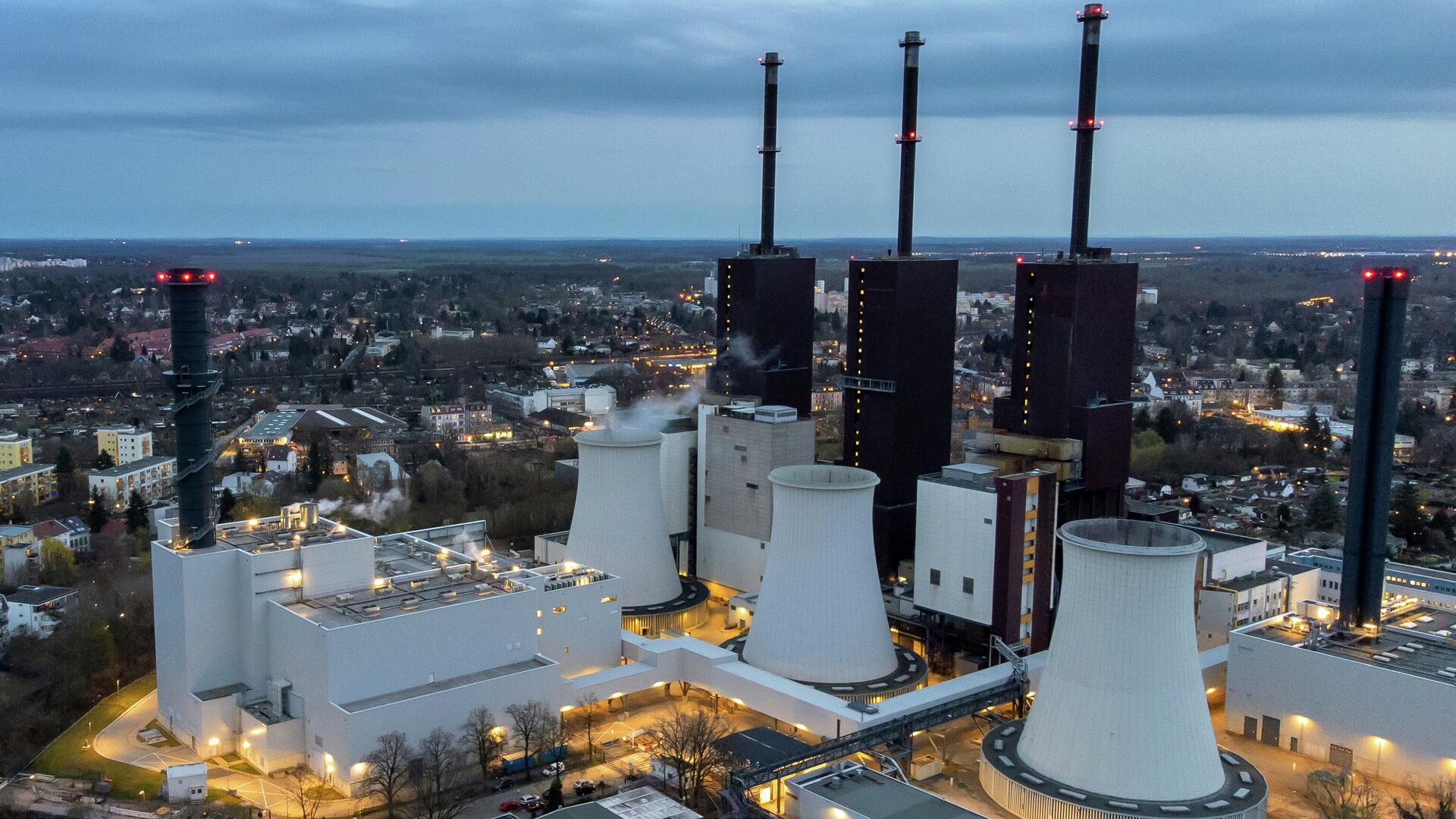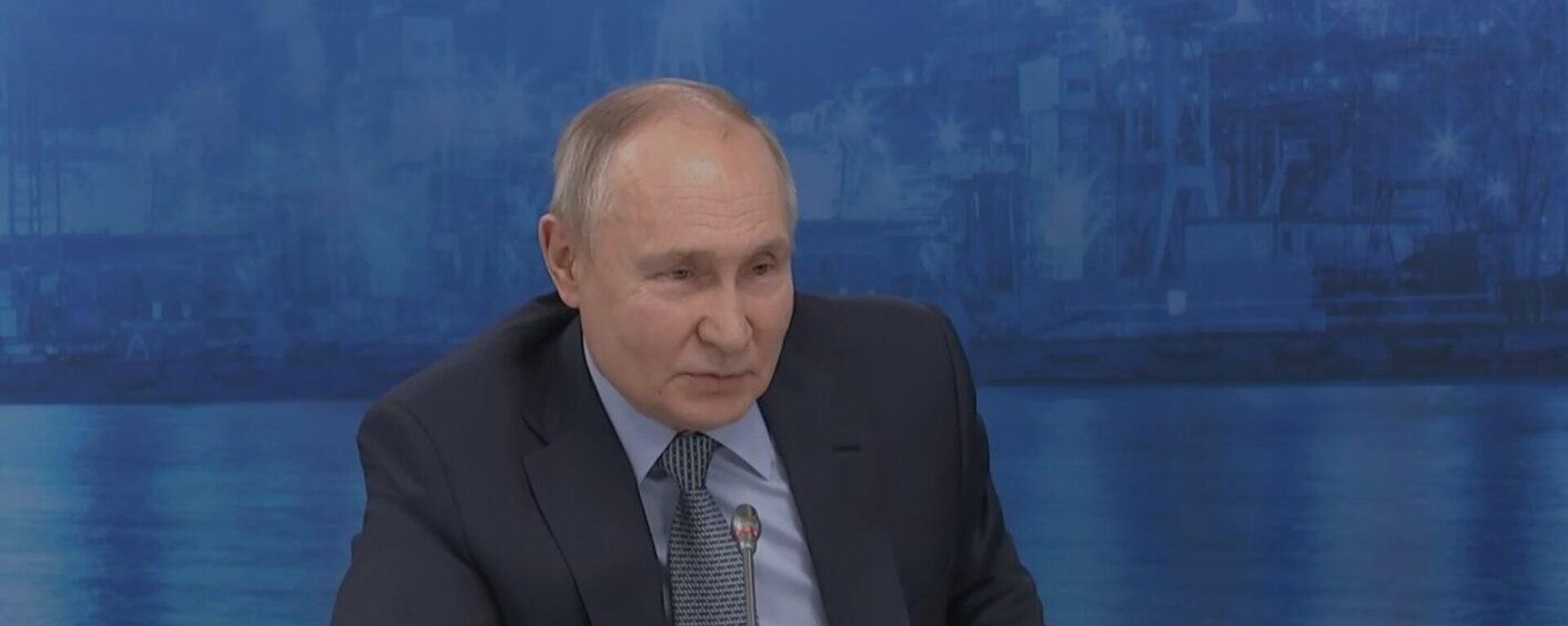'Germany is Doomed': MEP Paints Unflattering Picture of Berlin's Economic Prospects

© AP Photo / Michael Sohn
Subscribe
Germany's policies implemented in the wake of the Ukrainian conflict escalation in February 2022 translated into serious losses for the German economy.
Under the leadership of Chancellor Olaf Scholz and his government, Germany did its best to sever itself from cheap Russian energy and to cut all economic ties with Russia regardless of how beneficial they were to the German economy.
The shutdown of the last three German nuclear power plants in 2023 was unsurprisingly followed by it ceasing to be a power exporter and becoming a power importer instead, even as Scholz boasted that his country is done with nuclear power generation.
The data recently presented to media by the German Institute for Economic Research suggest that Germany’s economy lost some €200 billion amid the Ukrainian conflict, primarily due to soaring energy prices.
In the meantime, it appears that Germany is importing as much gas from Russia as it was before February 2022, albeit in a much more costly way, said Dr Gunnar Beck, member of the European Parliament for the rightwing Alternative for Germany (AfD) party.
“The difference is that Europe is now importing Russian gas via third countries to disguise the origin of the gas. So they can pretend that they've reduced gas supplies from Russia, and they are honoring the sanctions, but they just continue as they did before by importing that same gas through third countries. And it's been officially declared to be gas from other sources,” he explained.
This roundabout importing scheme obviously costs Germany more, which is “one major factor for the sharp increase in electricity prices,” Beck remarked.
Renewable energy, towards which the current German government seems to be pivoting, is “vastly more expensive than electricity produced from fossil fuels and it cannot be easily stored,” Beck noted.
“So, Germany is pretty much doing what it's been doing before. But it's just paying much higher prices for the same thing. It's very very silly. It is all to be able to pretend to be seen supporting Ukraine,” he said. “I mean you will know from the Russian trade balance that Russia is still a very solid energy exporter. And much of this energy it's exporting is going to Western Europe. It's just not going from Russia directly.”
Pointing out the obvious flaws in the current German government’s plan to bet on renewable energy sources like wind and solar power, which is simply not enough to “power one of the world's leading industrial economies,” Dr. Beck observed that “essentially the German government's energy policy has not been thought through.”
“When the conflict in Ukraine escalated in February 2022, the German government, especially the Greens, used this as an excuse to accelerate the shift away from fossil fuels and to end imports of Russian natural gas and petroleum,” he said. “But that was only an excuse, they were heading in this direction in any event, and they accelerated the move towards alternative sources of energy without having found an adequate substitute for fossil fuels. Fossil fuels are essential to the German economy, especially because of Mrs. Merkel's foolish decision to end nuclear power.”
As Berlin seems to intend to steer clear of nuclear power generation, which Dr. Beck described as “the only solution to Germany's current energy supply problems,” and continues to pursue the “distinctly more unreliable” renewable energy sources, the prospects of German industries and consumers do not seem particularly bright.
“Living standards in Germany will continue to fall and German industry because of high energy costs is going to be increasingly uncompetitive. We already see the German industry is moving production to Eastern Europe and America. This trend will continue. And the result can only be a further erosion of living standards in Germany. Rising unemployment, inflation will continue to be high. I think Germany will be caught in the spiral of stagflation for many years to come,” Dr. Beck predicted.
Regarding how this situation might affect Scholz’s political prospects, Dr. Beck remarked that, while the current German government is increasingly unpopular, there does not seem to be an alternative.
“There's a massive vilification campaign against my own party for alleged right-wing extremism. In fact, we are broadly articulating views that were commonplace in Germany something like 25 years ago. There's nothing right-wing extremist about it,” he elaborated. “So the most likely outcome of the next federal elections in Germany, in 2025, will be a victory of the Christian Democratic Party. But the Christian Democratic Party is more or less committed to the same policies as the SPD. They will then enter into a coalition with either the SPD and or the Greens. Depending on the outcome of the election, there may be two parties to enter into coalition with.”
Such a coalition, Beck suggested, would then “broadly continue the same policies” as the current government, not to mention that they would not be able to “do anything else because Mrs. von der Leyen at EU level has imposed very tight targets on all EU member states.”
“So I'm pretty sure in so far as German foreign policy, German energy policy, German industrial policy is concerned, the malaise will continue. There will be no decisive change in energy policy, and Germany will continue to decline,” he stated.
“I would even go so far as to say the following. Yes, the German economy and Germany as a country managed to recover from two world wars. My own estimate is that Germany is very unlikely to recover from the policies of this government, and also the Merkel government, as a result of the combined effect of mass migration and a totally, totally ludicrous and unrealistic energy policy combined with various other follies imposed on Germany by the European Commission, and of course reinforced by the economic effects of the Ukraine conflict.”
According to Dr. Beck, Germany has “probably entered a period of terminal decline as a major industrial power,” with all of the country’s “established parties” being “completely unwilling to consider the obvious alternatives.”
"There are obvious solutions to Germany's problem. A complete reorientation in the country's energy policy, an end to the green transformation of the economy, an end to the money printing by the European Central Bank and an end to the open door migration policy," he added. "But none of the German parties except the AfD, is willing to effect the necessary change. I'm afraid, in my view, Germany is doomed."


